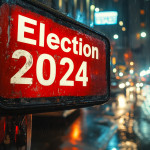Educating Public Relations Students About Driving Social Change
Social Change Strategic Communication
Professionalism, public trust and ethics have always been integral to public relations education. But for the first time in its 50-year history, the Commission on Public Relations Education (CPRE) is considering the role public relations can play in promoting social change and giving voice to historically underrepresented groups that have not been a part of traditional power structures in the corporate world.
University of Florida College of Journalism and Communications Public Relations Professor and Executive Associate Dean Spiro Kiousis collaborated with colleagues from five other universities to write about using public relations as a driver as social change for CPRE’s 50th anniversary report.
Kiousis and his team point out that Donald K. Wright, a well-known leader in public relations practice and education, was writing about PR and social responsibility as early as 1976. Unfortunately, the world has become much more polarized since then, particularly in the political arena, and polarization is a problem that needs to be addressed.
The authors pointed to the 2023 USC Annenberg Relevance Report that shows 90% of people in the United States believe that polarization is here to stay, and more than half of those surveyed are concerned about what that means for the future of our country. Additionally, three-quarters of corporate communicators believe that polarization is making it difficult for them discuss complex topics without alienating both their audience and their employees. Even so, 84% say their companies should use their voice to reduce that polarization.
The Annenberg report also reveals that nearly 60% of Americans say that businesses and organizations should use their platform to engage in timely and important sociocultural issues, and an overwhelming majority of people say they pay attention to brands that align with their value system.
CPRE itself conducted a study in 2023 of both PR practitioners and educators that shows strong support for advocacy in the public relations profession.
The authors make a case for engaged scholarship and using PR as a driver for social change, saying that educators should “be courageous in addressing challenging issues including gender identity, sexuality, racism, ableism and poverty. These issues, although polarizing, are precisely the locations where ideas about social change can be most productive.” They also recommend combining social-change content with skills-based and technical content to achieve true integration and to allow students to speak about their own experiences in the classroom.
Indeed, a 2021 Pew Research study showed that Zillennials stand out for climate-change activism, and nearly 70% are worried about their future. So, for the students sitting in the classroom today, their concerns with their PR studies are more than academic.
The original chapter, “Public Relations as a Driver of Social Change,” was published in Navigating Change: Recommendations for Advancing Undergraduate Public Relations Education, edited by Elizabeth Toth and Pamela Bourland-Davis, by the Commission on Public Relations Education on Nov. 3, 2023.
Authors: Karen Gower, Spiro Kiousis, Regina Luttrell, Stephanie Madden, Gabriel Sadi, and Adrienne Wallace.
This summary was written by Gigi Marino.
Posted: December 6, 2023
Insights Categories:
Social Change, Strategic Communication
Tagged as: Public Relations, social change, Spiro Kiousis


